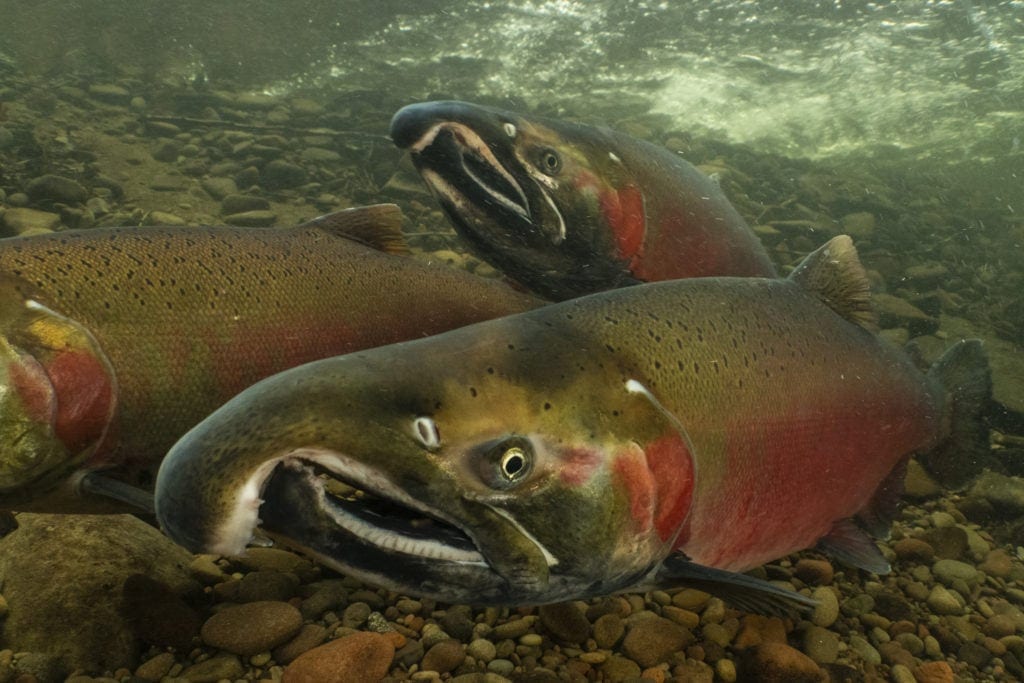Broadly, the Wild Salmon Recovery Initiative (WSRI) is intended to advocate and influence federal, state, and local agencies in Washington state to fully implement and comply with the Endangered Species Act, the Clean Water Act, and other local, state, and federal statutes integral to the recovery of wild fish ecosystems.

Wild Fish Conservancy’s Wild Salmon Recovery Initiative is intended to ensure that government agencies and decision-makers implement scientifically, socially, and legally responsible policies for the recovery of threatened and endangered salmon and steelhead and their aquatic ecosystems.
Wild Fish Conservancy’s staff of professional scientists and advocates analyze and prepare technical reviews of policy proposals, watch-dog public agencies, participate on recovery forums and technical-review teams, work directly with resource-management officials, establish and participate in coalitions with other regional and national conservation advocates, research alternative harvest solutions, develop information/action campaigns, and where necessary, litigate to implement and defend the laws intended to protect the region’s wild fish heritage.
For two decades, scientists and managers alike have identified overharvest, hatcheries, habitat loss, and dams as the four major causes of fishery collapse and barriers to salmon recovery. More recently, the Atlantic salmon aquaculture industry and the construction of fish farms in juvenile salmon migration corridors has increased pressure on Endangered Species Act-listed salmon, the endangered southern resident killer whales that rely on them as prey, and their broader ecosystems by damaging water quality, spreading disease, and increasing parasitic infection rates.
While much has been done in recent years by NGOs and fishery co-managers to address habitat and dams through various restoration activities across the region, there is still much work to be done to address the detrimental effects of aquaculture, harvest, and hatcheries on wild fish populations.
Join our mailing list to recieve important updates on our work, the latest wild fish news, & opportunities to take action to support wild fish.
This site is protected by reCAPTCHA and the Google Privacy Policy and Terms of Service apply.
Wild Fish Conservancy is recognized as a 501(c)3 non-profit by the IRS